Central America
Ex-leader ahead as Costa Ricans elect new president
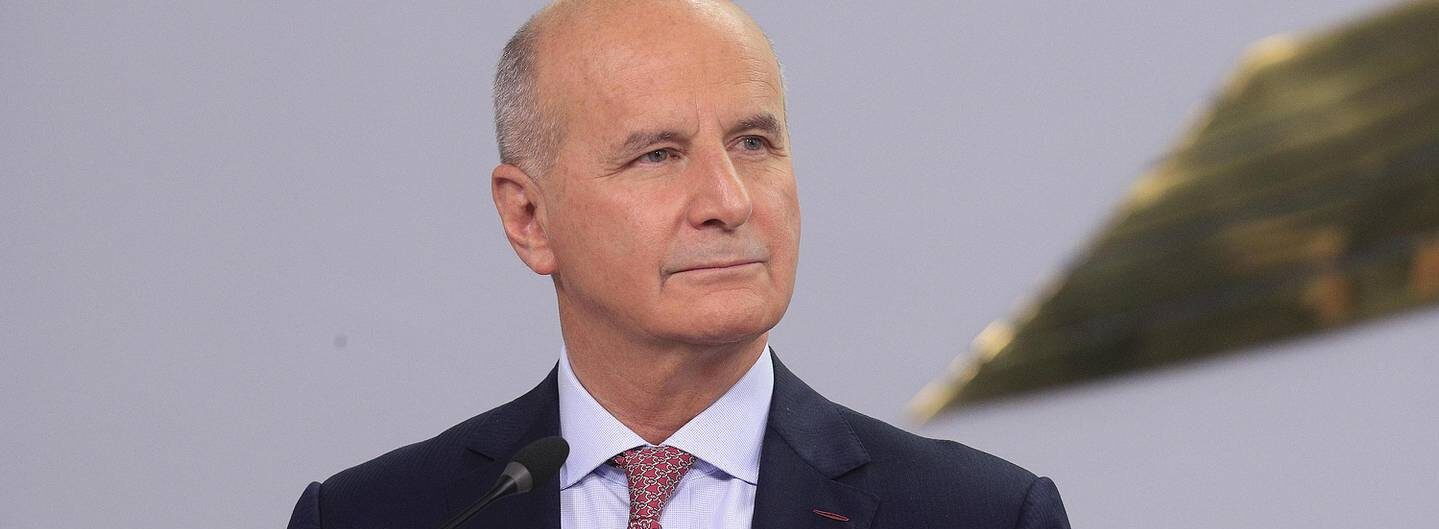
AFP
Costa Ricans voted for a new president Sunday from a crowded field of candidates, with a center-left former leader ahead of the pack with about 60 percent of ballots counted in one of Latin America’s stablest democracies.
Twelve hours of voting closed at 6 pm (midnight GMT) in what is frequently rated the region’s “happiest” country, a tourist mecca and a leading green economy.
However, polls show unemployment, corruption and creeping living costs topping the concerns of 3.5 million eligible voters in the country of five million people.
Jose Maria Figueres, 67, of the center-left National Liberation Party (PLN), had roughly 27 percent of the vote with 63 percent of ballots counted, the Supreme Electoral Tribunal said.
To win in the first round, one candidate must take 40 percent of the vote — otherwise the two leading contenders will face each other in an April 3 run-off.
The eventual winner will be expected to tackle a worsening economy where unemployment has been steadily rising for more than a decade and reached 14.4 percent in 2021.
The poverty rate stood at 23 percent last year while the public debt was 70 percent of GDP.
Costa Rica’s problems have worsened with the coronavirus pandemic dealing a hard blow to its critical tourism sector.
On Sunday, Figueres, who led the country from 1994 to 1998, condemned the levels of poverty as well as housing shortages.
“We have never experienced these things in this magnitude,” he said.
For Francisco Zeledon, the first voter in line at one polling station, “voting is the most important weapon we have to solve problems.”
“We have to solve poverty and create jobs for people,” the 35-year-old said.
Polls have showed about a third of voters are undecided, faced with a choice of 25 presidential candidates.
But one outcome looked likely: the ruling Citizens’ Action Party (PAC) appeared set for a bruising defeat with anti-government sentiment sky-high.
– Record unpopularity –
“The ruling party is completely weakened and has no chance” after two successive terms in office, said political analyst Eugenia Aguirre.
“The presidential unpopularity figure of 72 percent is the highest since the number was first recorded in 2013,” she added.
This means the country’s traditional political heavyweights — the PLN and the Social Christian Unity Party — could return to the fore after decades of a near political duopoly only recently broken by the PAC.
With results trickling in around 0600 GMT, second place remained closely contested between the economist Rodrigo Chaves (16 percent) and conservative evangelical preacher Fabricio Alvarado Munoz (15 percent).
Munoz commands support from the evangelical community, which makes up about 20 percent of Costa Rica’s population.
Meanwhile, center-right Lineth Saborio of the PUSC garnered 12 percent.
Presidents in Costa Rica cannot seek immediate re-election, leaving incumbent Carlos Alvarado Quesada out of the running.
– Problems ‘worsened’ –
Costa Rica is known for its eco-tourism and green policies, with its energy grid run entirely on renewable sources.
Unlike many of its volatile Central American neighbors, Costa Rica has no army, has had no armed conflicts since 1948 and no dictator since 1919.
But the worsening economic situation has hit confidence in the political class.
Voters under 40 have only known “periods in which not only problems have not been resolved, but they have worsened,” university student Edgardo Soto, an undecided voter, told AFP.
Apathy and abstentionism are features of Costa Rican elections.
In 2018, 34 percent of voters stayed away, though participation is technically obligatory.
Eugenia Zamora, president of Costa Rica’s electoral tribunal, said Sunday’s vote kicked off with high turnout in the morning, and proceeded without incident.
“This is a country with a robust democracy… It offers lessons for other countries,” added Isabel de Saint Malo, head of the Organization of American States observer mission.
Outgoing president Alvarado said the vote was an affirmation of Costa Rica’s place among “the world’s strongest democracies.”
Costa Ricans also cast their vote Sunday for the 57-member Congress.
“I hope that whoever wins really thinks of the people,” said 77-year-old Mayra Sanchez after voting in Moravia, “and not of themselves.”
International
Two fans killed in gate collapse outside Chile’s Estadio Monumental
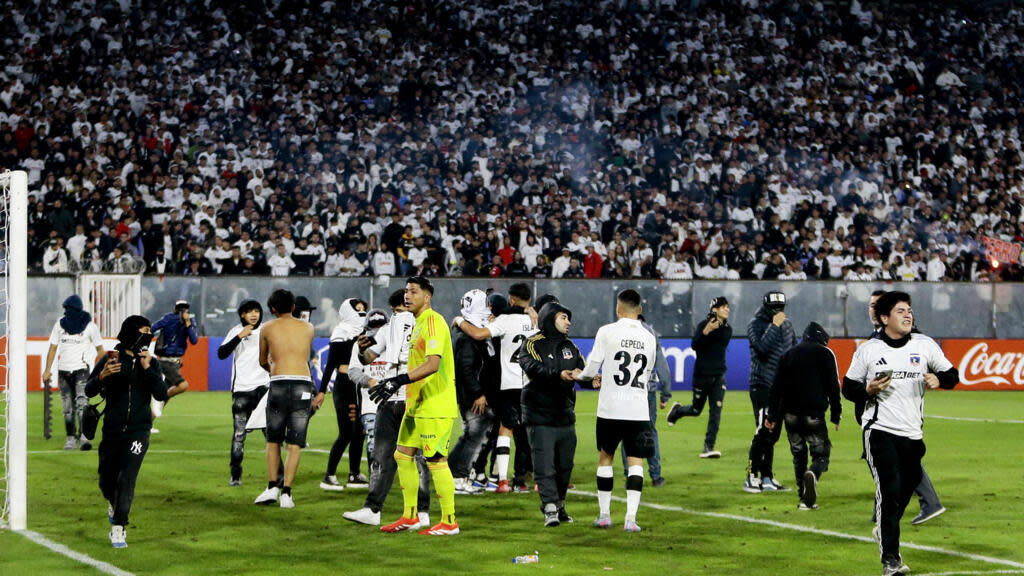
Two people lost their lives near the Estadio Monumental in Santiago, Chile, following a chaotic incident that occurred before the Copa Libertadores match between Colo Colo and Brazil’s Fortaleza on April 10. According to the Public Prosecutor’s Office, the victims were crushed after a fence on the stadium perimeter collapsed, though authorities are investigating whether a police armored vehicle may have played a role.
It was a black Thursday at Chile’s Estadio Monumental. Two local fans died outside the stadium after a yet-unclarified incident caused a metal gate to fall on them, leading to fatal asphyxiation.
Local media reports indicate that a group of fans attempted to force their way into the stadium before kickoff. In response, local police allegedly deployed armored vehicles to block the breach.
Preliminary reports cited by local newspapers and news agencies like EFE identify the victims as two young individuals—one 18 years old and the other just 13.
Central America
Nicaragua seeks ICJ intervention in Gaza conflict amid escalating violations

The Government of Nicaragua announced on Thursday that it has once again requested the International Court of Justice (ICJ) of the United Nations to intervene “as part” of the legal proceedings initiated by South Africa against Israel, accusing it of violating the 1948 Genocide Convention with its ongoing war in the Gaza Strip since October 7, following an attack by the Islamist group Hamas on Israeli territory.
In a statement, the Nicaraguan government, led by Daniel Ortega and his wife Rosario Murillo, explained that on April 1, they had decided to discontinue the proceedings filed with the ICJ related to the “severe violations of the rights of the Palestinian people and state,” due to the “high financial cost” involved for a developing country like Nicaragua, which faces significant economic restrictions.
“However, in the last week, there has been an escalation in violations against the Palestinian people and even against international humanitarian services, clearly revealing Israel’s disregard for all international law norms and the total complicity, particularly of some Western countries, which have decided to continue their political, economic, and military support for those responsible for these crimes,” stated the Nicaraguan government.
In light of this, the government continued, and “making a great effort, Nicaragua has decided to notify the International Court of Justice that it wishes to continue with the legal proceedings regarding the violations of the rights of the Palestinian people.”
Central America
U.S. Government says deported migrants should remain in El Salvador for life
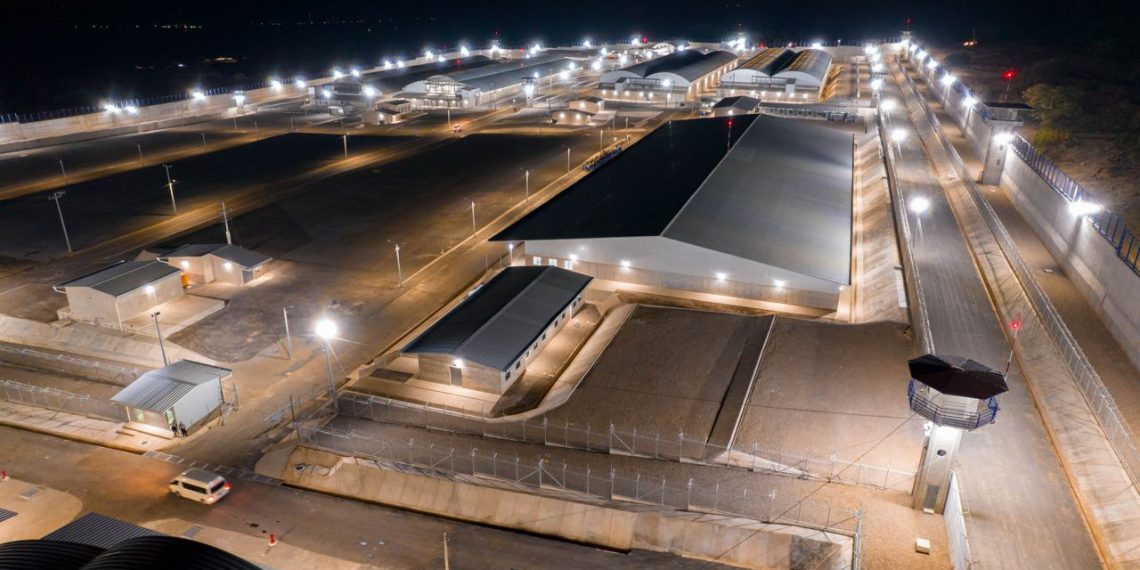
The United States government believes that the 238 migrants recently deported to El Salvador should remain in the country “for the rest of their lives.”
This was stated by Kristi Noem, the Secretary of Homeland Security, during a press conference. The following day, in a televised cabinet meeting, she reiterated the government’s commitment to continue its campaign to deport over 11 million people living in the U.S. without legal immigration status.
“We are confident that the people (sent to El Salvador) should be there, and they should stay there for the rest of their lives,” Noem told a group of reporters on Wednesday.
Despite the Trump administration’s defense of its decision to transfer the migrants to the Terrorism Confinement Center (Cecot), both testimonies from their families and reports from U.S. media outlets have shown that most of those currently detained there have no criminal backgrounds.
-

 International23 hours ago
International23 hours agoDominican Republic mourns over 200 dead in Jet Set nightclub collapse
-

 Central America5 days ago
Central America5 days agoHonduras Hosts CELAC Summit Amid Regional Concern Over U.S. Deportations
-

 Central America1 day ago
Central America1 day agoNicaragua seeks ICJ intervention in Gaza conflict amid escalating violations
-

 International4 days ago
International4 days agoRussia and US to Meet in Istanbul for Diplomatic Talks on April 10
-

 International5 days ago
International5 days agoTeachers in Southern Mexico Bring Education to Stranded Migrant Children
-
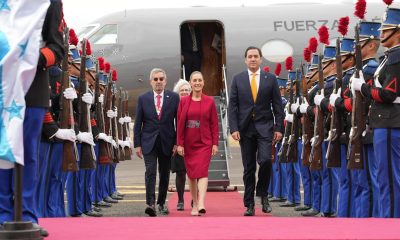
 Central America2 days ago
Central America2 days agoMexico’s president proposes regional economic summit at CELAC
-

 Central America5 days ago
Central America5 days agoTrump Administration Asks Supreme Court to Block Return of Deported Salvadoran
-

 Central America4 days ago
Central America4 days agoAudit Exposes Major Breaches in Panama Canal Port Concession, $300 Million Owed to State
-

 Central America5 days ago
Central America5 days agoMulino and Orsi Highlight Shared Vision After Panama Joins Mercosur as Associate State
-
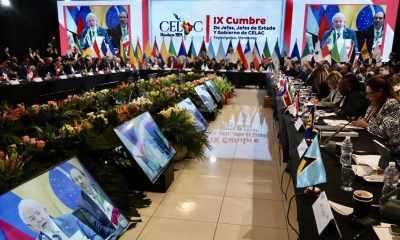
 Central America2 days ago
Central America2 days agoColombia to host fourth EU-CELAC Summit in November
-

 International2 days ago
International2 days agoMerengue concert turns to mourning as Jet Set collapse claims 136 lives
-

 Sports4 days ago
Sports4 days agoNeymar Returns to Santos Training After Month-Long Injury Layoff
-
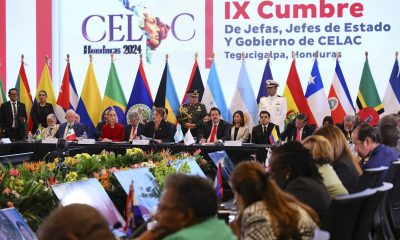
 Central America2 days ago
Central America2 days agoCELAC condemns unilateral sanctions in ‘Tegucigalpa Declaration’
-

 Central America1 day ago
Central America1 day agoU.S. Government says deported migrants should remain in El Salvador for life
-

 International4 days ago
International4 days agoMaduro Announces Economic Emergency Decree Amid Growing Tensions with the U.S.
-

 International4 days ago
International4 days agoTransgender Student Arrested at Florida Capitol for Using Women’s Restroom Under New State Law
-

 International1 day ago
International1 day agoItalian biologist found dead in Colombia; investigation underway
-

 International4 days ago
International4 days agoScience Brings Back the Extinct Direwolf with Successful De-Extinction Project
-

 International23 hours ago
International23 hours agoVenezuelan oil shipments resume after tariff-induced delays
-

 International23 hours ago
International23 hours agoTwo fans killed in gate collapse outside Chile’s Estadio Monumental
-

 International1 day ago
International1 day agoMaduro signs Economic Emergency Decree to counter U.S. sanctions on Venezuela
-
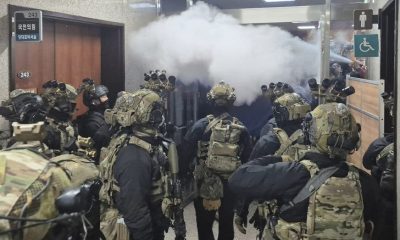
 International23 hours ago
International23 hours agoConstitutional Court Removes Yoon: Lee Jae-myung’s Rise Sparks Warnings of a Radical Shift















